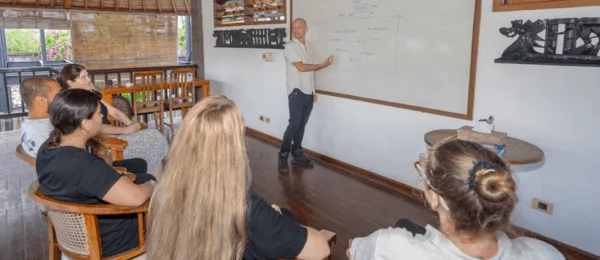
Ice Addiction Help for Families
Facing the challenges of ice addiction within a family can be heart-wrenching. With 1 in 75 people reported to have used methamphetamine in the past year and a significant portion of these users turning to ice, the most potent form of methamphetamine, families, and communities are increasingly feeling the impact.
Despite the decline in overall methamphetamine use, the intensity of ice addiction has led to a rise in calls for help, hospital admissions, and even methamphetamine-related deaths. This stark reality highlights the critical need for effective support and intervention.
Ice addiction doesn’t only affect the individual; it ripples through families and friends, leaving a trail of emotional, financial, and physical consequences. The journey towards recovery can come with feelings of anxiety, anger, and helplessness surfacing. However, it’s crucial to remember that recovery from ice addiction is possible.
What You Should Know About Ice
Ice, or crystal methamphetamine, is a potent stimulant that can be smoked or injected, leading to severe physical and psychological effects. Understanding the nature of ice addiction is the first step for families to provide the support their loved ones need.
Ice affects the brain’s dopamine levels, causing intense euphoria followed by extreme lows, driving a cycle of dependency that is hard to break without professional help.
Signs Your Loved One May Be Under Ice Use
Recognising the signs of ice (crystal methamphetamine) use is crucial for families who may be concerned about a loved one. Ice profoundly impacts an individual’s physical health, mental well-being, and behaviour. Here are signs to look out for:
Behavioural Changes
- Increased energy and aggression: A sudden surge in energy levels can be accompanied by aggressive behaviour, often uncharacteristic of the individual’s usual demeanour.
- Moodiness and irritability: Noticeable shifts in mood, including increased irritability, can indicate ice use. These mood swings can severely impact relationships and daily interactions.
- Altered social behaviour: Withdrawal from social circles, problems with friends, or run-ins with the law can all be red flags pointing to substance abuse issues.

Physical Signs
- Dilated pupils and trembling: Physical indications such as enlarged pupils and an unexplained tremble or shake can be signs of recent ice use.
- Health complaints: Health complaints such as stomach cramps, blurred vision, headaches, or dizziness without a clear medical cause should raise concerns.
- Changes in sleep and appetite: Patterns of exhaustion or insomnia, reduced appetite, and altered eating habits are common in ice users.
Mental Health Symptoms
- Anxiety and panic attacks: Symptoms such as dizziness, sweating, dry mouth, muscle aches, and nausea may manifest as anxiety or panic attacks.
- Psychosis: In more severe cases, ice use can lead to psychosis, characterised by paranoia, hallucinations, and delusional thinking.
Methods of Ice Use
- Using a glass pipe: The most common ice method is through a small glass pipe, which can also be swallowed, snorted, or injected.
- Concealed use: Many individuals using ice may not show obvious signs, making recognising it challenging. Ice can affect people differently; these symptoms alone do not confirm that someone is using ice.
If you suspect a loved one is using ice, the best approach is to start a conversation. Express your concerns without judgment, aiming to understand rather than confront them. Remember, some symptoms of ice use can mimic common mental health conditions, making professional assessment crucial.
If you recognise these signs in someone you care about, seeking professional support is important. The journey to overcoming ice addiction is challenging but not impossible, with the right help and compassionate support from family and friends.
Tips for Helping a Family Member Struggling with Ice Addiction
Discovering that a family member is entangled in the grip of ice addiction can be a profound and distressing revelation. Ice, or crystal methamphetamine, doesn’t just affect the individual using it; its ramifications ripple through their entire circle, especially touching those closest to them.
Families often find themselves on an emotional rollercoaster, feeling helpless, overwhelmed, and desperate for a way to support and counsel their loved ones to stop using ice.
- Offer unwavering support: Approach your loved one with compassion rather than accusation. Addiction is an illness, not a choice, and they need your understanding, not judgment.
- Educate yourself: Dive into resources like the Australian Drug Information Network, Cracks in the Ice, and Family Drug Support to better grasp the complexities of ice addiction. This knowledge will empower you to effectively support your loved one.
- Open the lines of communication: Create a safe space for dialogue. Listen more than you speak, maintain confidentiality, and ensure they know you’re there when they’re ready to talk. Avoid lectures; focus on being a pillar of support.
- Be present but not enabling: Show that you care and are there to support them emotionally. However, be cautious not to enable their addiction. There’s a delicate balance between supporting someone and inadvertently supporting their addiction.
- Guide them towards professional help: While you can’t force your loved one into rehab, you can make them aware that help is available when ready. Familiarise yourself with treatment options to provide informed suggestions.
- Take care of yourself: Supporting someone with an ice addiction is draining. Ensure you also prioritise your well-being. Utilise support services for families of people with an addiction, take time for self-care and remember, it’s okay to seek help for yourself.
Recovery from ice addiction is fraught with challenges. But with the right approach and support, there is hope. Remember, the goal is to guide them toward professional treatment and support them through this process without losing sight of their needs and well-being.
Is There Family Drug Support for Recovery from Ice Use?
For families grappling with the effects of a loved one’s ice addiction, comprehensive support is available, specifically designed to empower families and friends of ice addicts with knowledge, strategies, and connections to essential services.
Here’s a deeper look into the types of support available for families affected by ice use:

Breakthrough for Families Program
This program provides targeted assistance to families and significant others of individuals struggling with ice and other drug addictions. It focuses on supporting families with children, ensuring they have the tools and resources to manage this challenging situation effectively.
- Information and support: Breakthrough for Families offers families access to free, comprehensive information about ice addiction, its effects, and how to cope. The program also delivers tailored strategies to support both the individual addicted to ice and their family members.
- Individual support sessions: Recognising that each family’s journey is unique, the program provides the opportunity for private sessions. These sessions are tailored to each family’s specific needs and circumstances, offering personalised guidance and support.
- Community forums and workshops: Families can participate in community forums and workshops designed to educate about ice addiction and share practical solutions and strategies for recovery. These forums also facilitate connection with others facing similar challenges, fostering a sense of community support.
- Accessibility: Delivered in community settings, the program ensures that support is accessible to all, including those who may find it challenging to access help. It’s a voluntary service, offering flexibility and privacy to participants.
- Resources for families: Queensland Health (Insight Training) supports service providers nationwide with program resources, training, and worker support, ensuring a consistent, high-quality approach. Families can download information booklets and a list of service providers to find support in their area.
- Cultural sensitivity: The Queensland Aboriginal and Islander Health Council has adapted the program for families of Aboriginal and Torres Strait Islanders, ensuring culturally appropriate delivery in various communities.
Getting Support
Families seeking help can contact organisations that deliver the Breakthrough for Families program in their hospital and health service districts. These organisations offer confidential assistance, including free, personalised support and community information sessions.
By engaging with these services, families can find hope, develop effective coping strategies, and take proactive steps toward recovery together.
Recovery is Possible. Get Help for Your Loved One Today
Recovery from ice addiction is challenging but achievable with the proper support. Remember, confronting drug use is a journey for the whole family, and you’re not alone in this. With available support services, professional guidance, and a compassionate approach, your loved one can embark on the road to recovery.
Sivana Bali offers a serene, supportive environment in Canggu, Bali, for individuals and families battling ice addiction. Our holistic approach combines personalized treatments, including cognitive behavioural therapy and mindfulness, within a luxury setting. Here, families find comprehensive support and a pathway to recovery, ensuring no one navigates this journey alone.
Contact us today for help and support in combatting the misuse of ice and other drugs.

Contact Us
